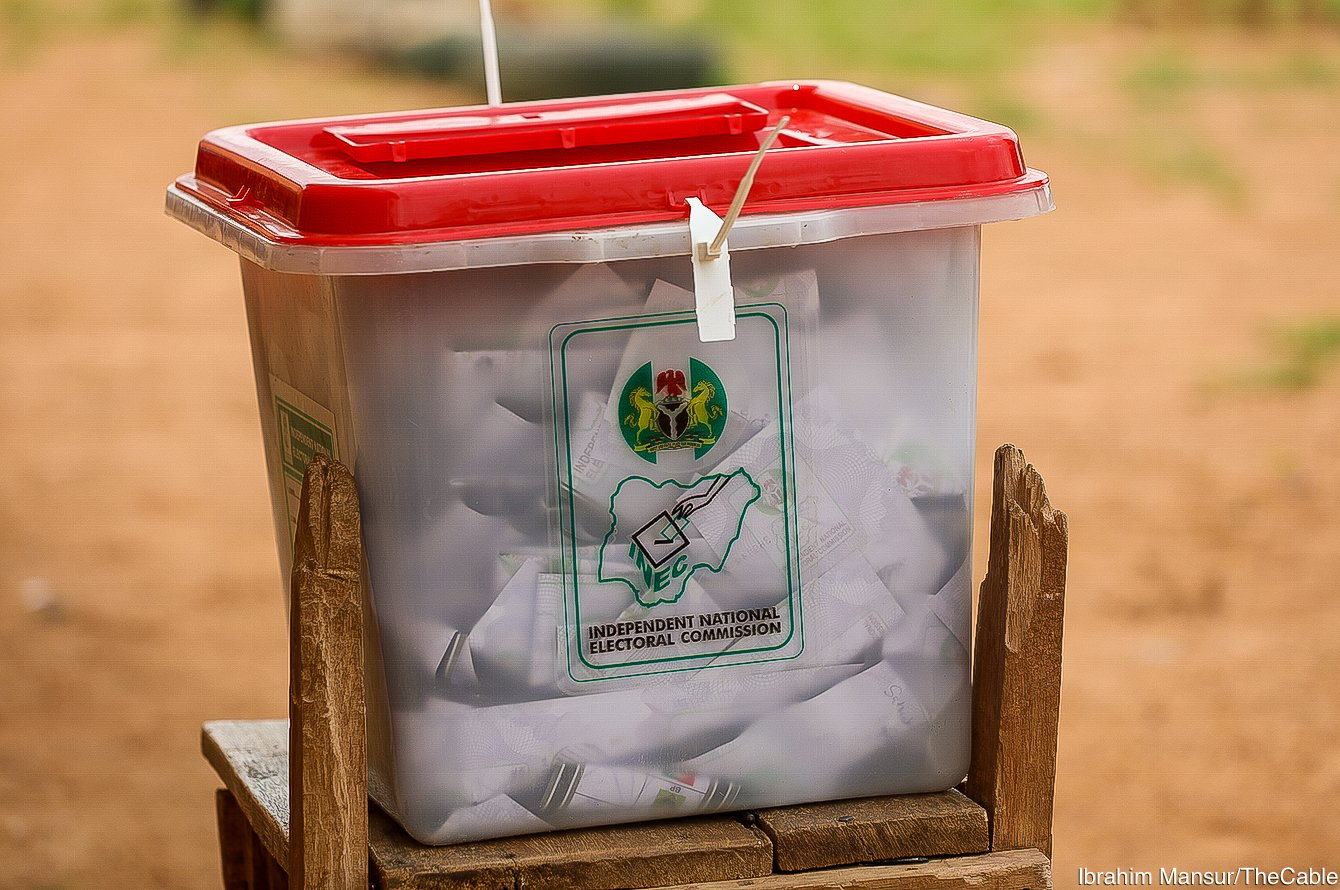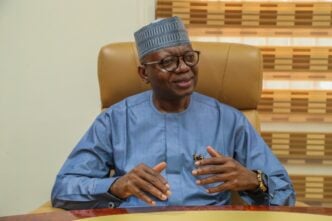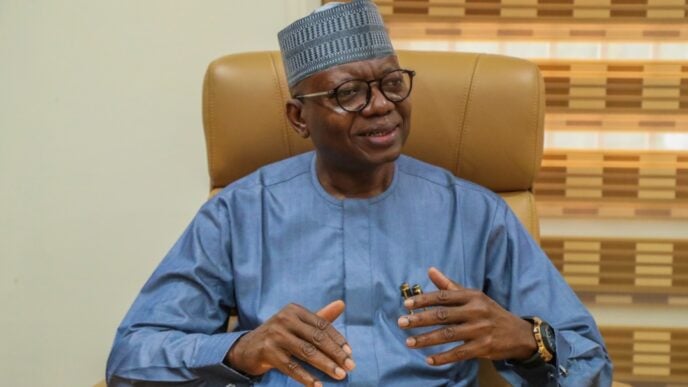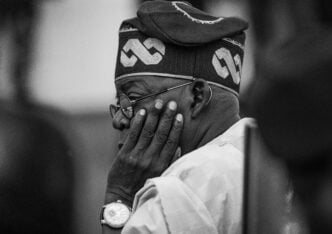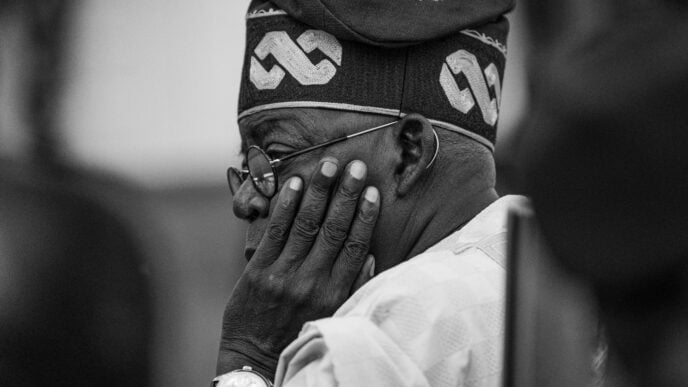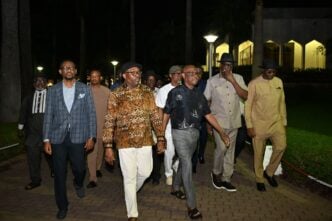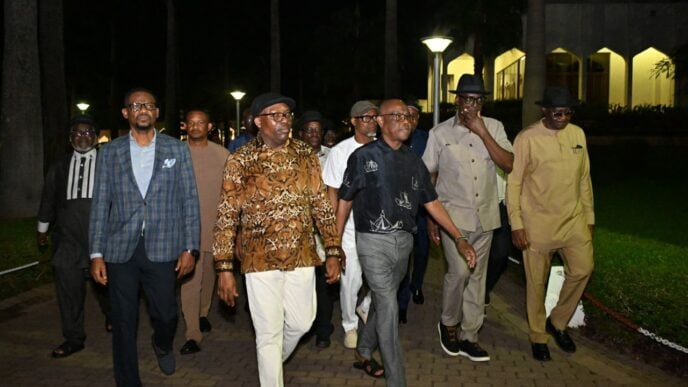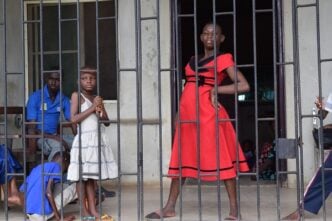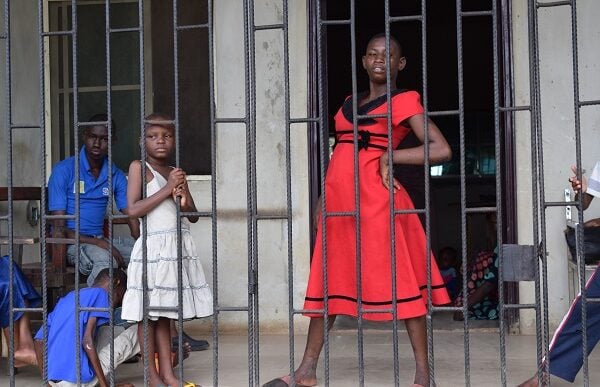BY TOLULOPE OLOLADE FAMOROTI
Democracy requires all eligible persons to vote and fully participate in the political process. Despite Nigeria’s 26-year history of democracy, systemic and administrative barriers continue to disenfranchise major portions of the population, including Nigerians living abroad, critical workers on election day, and prison inmates. During the 2023 general election alone, an estimated two million Nigerians were not able to vote because they worked on election day. Imagine a democracy where eligible voters are disenfranchised for no fault of theirs. In addition are the millions of Nigerians in the diaspora who contribute in different ways to the country but are unable to vote.
In March 2025, a bill proposing an amendment to the Electoral Act to introduce early voting passed second reading, while the bill to introduce diaspora voting scaled second reading in November 2024. Both bills seek to facilitate the right of eligible Nigerians to vote and strengthen democracy through active and direct citizens’ participation. To strengthen Nigeria’s democracy, it is important that election reforms incorporate mechanisms like early voting, diaspora voting, and inmate voting, as learned from other democracies. While these proposals seem ambitious and controversial, it is important to examine and assess their viability based on their merits.
Early voting occurs when eligible voters cast their ballots before the official election date. This technique is especially useful for people who are unable to vote on election day due to work commitments, travel, or other reasons. About two million ad-hoc staff, including security personnel (police, military, DSS, NSCDC), INEC officials, journalists, and election observers, are constantly on duty during the general election, and these vital workers are denied voting rights. According to a report by the Independent National Electoral Commission (INEC), the 2023 general election witnessed the disenfranchisement of over one million ad-hoc employees, including 310,973 police officers, 93,495 military and Department of State Service (DSS) officials, 51,000 National Security and Civil Defense Corps (NSCDC) personnel, 21,000 Federal Road Safety Corps (FRSC) officers, 11,336 Nigeria Correctional Service officers, 9,447 personnel from the National Drug Law Enforcement Agency, and 350 Economic and Financial Crimes Commission (EFCC) operatives. Furthermore, 144,800 accredited election observers from 196 national and domestic organisations, along with thousands of journalists, were unable to exercise their right to vote. The exclusion of this substantial number of voters has a direct impact on election results.
Notably, the arguments against the early voting bill are based on the fears of additional logistical cost, the possibility of electoral fraud and security concerns. While these fears are germane, they fail to consider that these are the same fears on general election day, but it has not stopped us from conducting periodic elections. Accordingly, the focus should be on introducing safeguards to promote the quality of voting both on the early voting day and on the Election Day. This includes additional resources, such as secure ballot storage and adequate staffing, as well as measures like biometric verification and strict monitoring, to alleviate these concerns.
Advertisement
Diaspora voting refers to the right of citizens living outside their home country (in the diaspora) to vote in general elections from their countries of residence. This practice has gained global traction, with 141 countries enabling some form of diaspora voting as of 2020. Voting methods vary and may include in-person voting at embassies or consulates, postal voting, and online voting. Countries also differ on the range of elections in which diaspora citizens can vote, from national to local elections.
The straightforward response to the question of why Nigeria requires diaspora voting would be inclusiveness and promoting participatory democracy. According to the Nigerians in Diaspora Commission, over 15 million Nigerians live abroad, providing significant economic benefits via remittances of over $20 billion per year. While they contribute significantly to the economy, these citizens are excluded from participating in elections. Notably, 40 African countries, including South Africa, Rwanda, Mozambique, Malawi, Chad, Kenya and Algeria, have introduced the right to diaspora voting. But this opportunity is still not available to millions of Nigerians in the diaspora. Attempts to amend the 1999 Constitution to enable diaspora voting have previously failed, but we have another opportunity in the 10th National Assembly.
The ability of prisoners to vote in elections while incarcerated is known as prisoner voting. Depending on the laws and democratic ideals of each nation, the scope of this right differs. It’s interesting to note that different nations have different approaches to prisoner voting. Let’s look at a few examples from some nations: South Africa, Kenya and Sweden, amongst others, allow prisoners to vote like any other citizen, while Canada and Germany allow partial restrictions and only allow prisoners serving short sentences or for specific crimes to vote. Within Africa, the right of prisoners to vote remains a topic of conversation, with the court also playing an important role in determining the right of prisoners to vote. In Nigeria, there is no constitutional provision prohibiting the right of prisoners to vote. However, efforts in previous elections to enable prisoners to vote have been unsuccessful.
Advertisement
According to the Nigerian Correctional Service (NCoS) report of March 3, 2025, Nigeria’s inmate population stands at 80,183. Of this population, 26,775 inmates are convicted, while 53,408 are awaiting trial. The data indicates that 33% of the inmates are convicted, and 67% are awaiting trial. This demonstrates that a sizable majority of the inmate population (67%) are awaiting trial and have not been convicted of any crime. In many jurisdictions, people who are awaiting trial are still able to vote, while those who have been convicted may lose this privilege based on the laws. Unfortunately, the Nigerian 1999 Constitution (as amended) is silent on this. Disenfranchisement could therefore have an effect on a sizable section of the prison population, especially those who are still legally deemed innocent. It is against democratic values and global best practices to deny people the right to vote, especially during the presidential election that is not constituency-based.
Despite numerous but unsuccessful attempts to legalise early voting and diaspora voting in previous assemblies, the 10th assembly presents another opportunity for this landmark legal reform. Senator Abdulaziz Musa Yar’adua, in the 10th national assembly, introduced a bill to amend the Electoral Act 2022 to allow for early voting in May 2024. The bill proposed to allow Nigerians on essential election duties, such as election officials, security personnel, journalists, and observers, to cast their votes before election day. This is meant to address the disenfranchisement of more than one million Nigerians who are unable to vote owing to work obligations on election day. Interestingly, the bill passed its second reading in the senate and has been referred to the senate committee on electoral matters for future legislative action.
Furthermore, diaspora voting has been a topic of debate for years, requiring legislative action. This requires the amendment of Sections 77(2) and 117(2) of the 1999 Constitution, which currently stipulate that voters have to be resident in Nigeria at the time of registration. Honourable Abbas Tajudeen in the 10th national assembly reintroduced a bill to enable diaspora voting, with the aim of enfranchising nearly 20 million Nigerians residing abroad. The bill passed its first reading in the House of Representatives in July 2024 as a constitutional amendment bill.
However, conversations around prisoners’ voting rights have been limited compared to early and diaspora voting. While there are no active bills specifically addressing this issue, civil society organisations and citizens have advocated for reforms to include prisoners in elections, particularly the presidential election, citing international human rights best practices. Furthermore, there are currently no legislative provisions in Nigeria that explicitly authorise or restrict convicts from voting. However, practical obstacles and societal views have slowed development in this regard.
Advertisement
So far, the Nigerian national assembly has taken significant steps to increase electoral diversity through early and diaspora voting measures. While early voting is steadily increasing, diaspora voting faces constitutional issues that require considerable reforms. Prisoners’ voting remains mostly neglected but needs to gain traction as part of broader electoral reforms.
With the implementation of the necessary reforms, we believe that Nigeria’s democracy can be strengthened, ensuring that no eligible voter is left behind. The time for transformative reform is now.
Ololade Famoroti is a legal practitioner and currently serves as a programme officer at Yiaga Africa, supporting democratic governance and legislative engagement.
Advertisement
Views expressed by contributors are strictly personal and not of TheCable.
